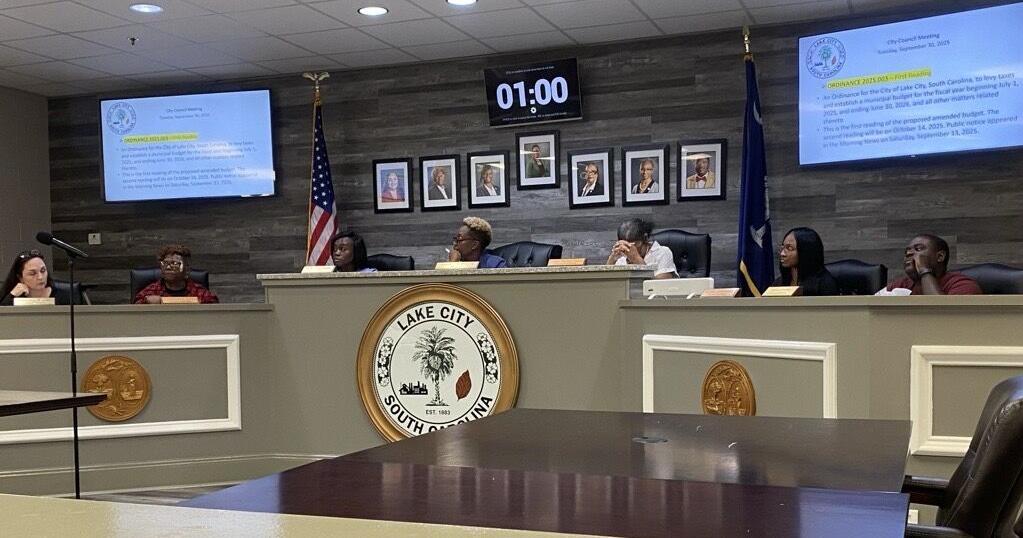
LAKE CITY – LaToya Miller and Brittney Webb came to Lake City’s budget public hearing with pleas for their jobs.
Miller, the city’s administrative assistant, and Webb, the city’s human resource and payroll manager, hold two of 21 positions that could be eliminated in Lake City’s upcoming budget. The two spoke at a Sept. 30 public hearing where the community stood behind them, suggesting cuts in other areas.
“As a single mother raising two daughters without nearby family support, this role is not only my livelihood but also my way of giving back,” Miller said at the public hearing. “My hope is to continue serving the city and retire here as I had always planned.”
Lake City is in the midst of fighting off financial turmoil after falling $3.9 million short in revenue goals in recent years. The city has already slashed more than a dozen positions and is working to amend its budget to cut around $2 million in costs.
They’ve also not completed an annual audit, leaving them without more than $100,000 in state funds each month. Now, the city is pursuing a forensic audit, a less routine and more thorough examination of financial decisions.
Every council member expressed regret about the loss of jobs at an emotional and heated Sept. 30 meeting after the public hearing. There, the first reading for the new budget passed 4-3.
The atmosphere was tense inside council chambers. As night fell, the council’s arguments were accompanied by a backdrop of displeased murmurs from attendees. One attendee called out that the council was inconsistent.
“I don’t think the people should pay for past mistakes,” another attendee said.
Mayor Yamekia Robinson and Councilmembers Nicole Singletary and Wilhelmena Scott voted against the budget.
“All I’m asking council members is that we need to reconsider on how this budget looks for the sake of our employees and our staff, and for the sake of our citizens — that’s all I’m saying,” Robinson said at the meeting.
The city has been operating without a proper budget since July 1, instead adopting last year’s less cost-effective budget.
“We can’t pay bills,” Councilman Jason Brown said at the meeting. “We got businesses cutting us off cause we can’t pay.”
Councilmember DeWonica Cooper added that by laying off employees, at least they would be able to find another job. If they stayed employed at the city, there would come a time when they would stop being paid, she said.
“You just dragging people along, dragging them along, dragging them along — it’s not fair to them, it’s not fair,” Brown said at the meeting. “We can’t pay bills, but we’re going to sit here and pretty much say we’re going to carry on dead weight.”
The proposed new budget would cut more than $2 million in spending. Alongside the elimination of 21 positions, cuts would include:
The sale of city-owned property, which would include offices at 106 E. Main St. and the Cole Road facility.
Discontinuing donations outside of city organizations.
Changing providers for employee health insurance.
Revenue changes would include:
Changing the rate structure for water and sewer rates. Historically, residents have not been charged for the first 2,500 gallons of water and sewer usage. The budget would change this, charging residents for their complete usage.
Hydrant rental fees for customers outside of city limits.
Doubling out-of-city non-residential fees.
Adjusting out-of-city non-residential rates.



